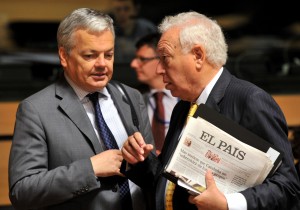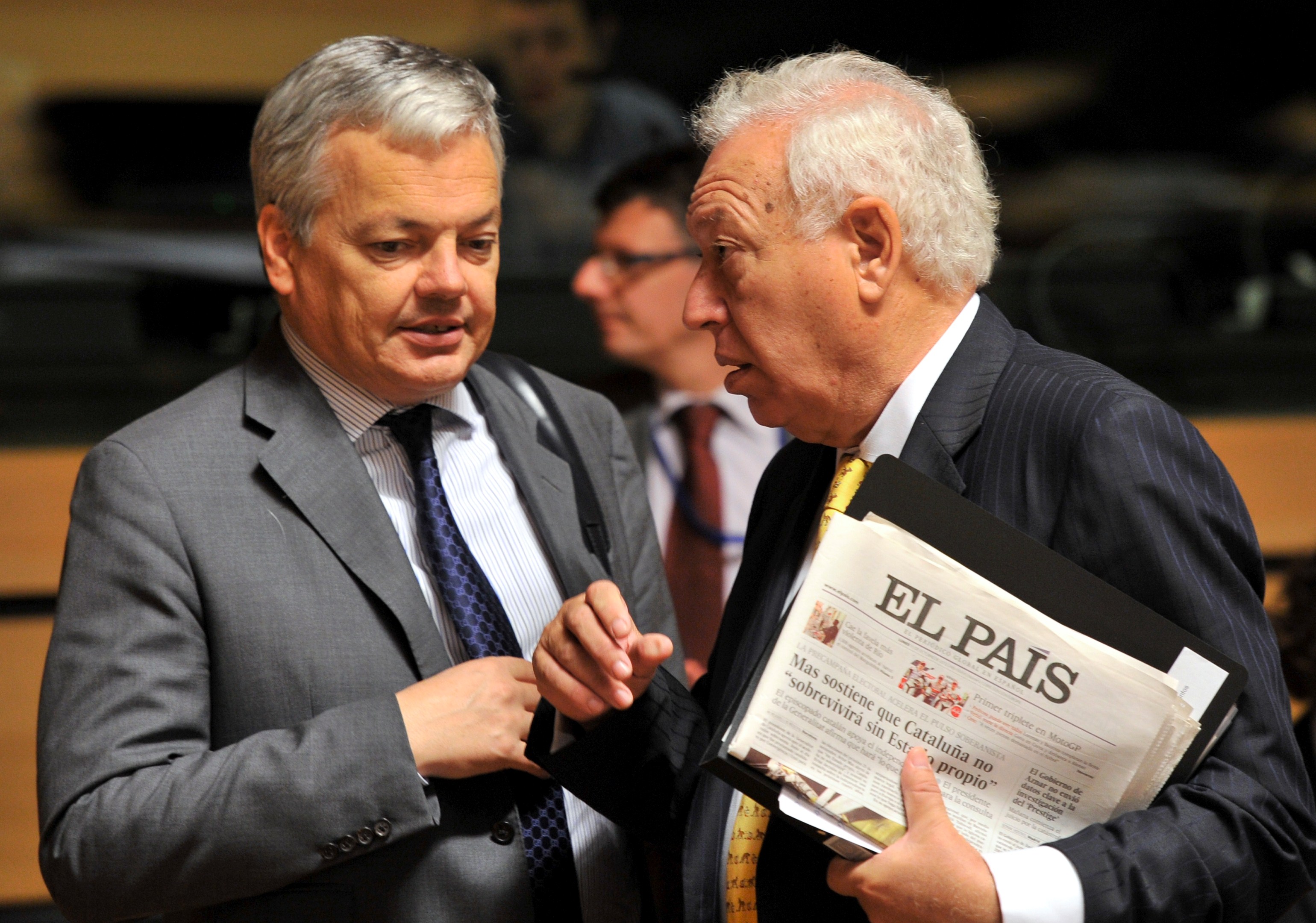
Luxembourg, (AFP)—European Union foreign ministers on Monday agreed a slew of tough new financial and trade sanctions against Iran aimed at forcing a breakthrough in stalled talks on Tehran’s contested nuclear programme.
“This is a sign of our resolve,” said British Foreign Secretary William Hague. “That we will step up the pressure, we will intensify the pressure and we will continue to do so over the coming months unless negotiations succeed.”
The new package targets EU dealings with Iran’s banks, shipping, and gas imports. Details on those targeted will be released Tuesday but a government minister is on the new blacklist, diplomats said.
“Iran is still playing for time despite intensive efforts for negotiation in recent months,” said German Foreign Minister Guido Westerwelle.
“We don’t see sufficient willingness so far for substantial talks about the nuclear programme,” he added.
Citing “serious and deepening concerns” over Iran’s nuclear drive, a statement approved by the ministers said the EU had “agreed additional restrictive measures in the financial, trade, energy and transport sectors.”
It condemned Iran’s continuing production of enriched uranium and said Tehran was in flagrant violation of its international obligations by refusing to fully cooperate with the IAEA.
EU foreign policy chief Catherine Ashton, who represents global powers in talks with Iran on its nuclear programme, said the sanctions aimed “to persuade Iran to come to the table.”
Previous sanctions, in particular a biting oil embargo that came into effect in July, are “quite clearly having an effect,” she told reporters.
Under the package, the EU bans all transactions between European and Iranian banks unless authorised in advance by national authorities, for example for humanitarian or medical reasons. It also tightens existing sanctions against the Central Bank of Iran.
Imports of Iranian gas will be prohibited, a symbolic gesture since the amounts involved are small, but the move sits alongside the much more significant July ban on imports of Iranian oil.
Sales of graphite and metals of potential use to Iran’s nuclear or ballistic missile programmes are also to be closed down, while other measures target Iran’s shipping industry.
The package also bans the use of EU vessels for transporting or storing Iranian oil.
An EU asset freeze and travel ban will be imposed on 34 additional entities, particularly in the oil, gas and financial sectors, as well as on one person.
“The restrictive measures agreed today are aimed at affecting Iran’s nuclear programme and revenues of the Iranian regime used to fund the programme and are not aimed at the Iranian people,” the statement said.
Iran “can act responsibly and bring these sanctions to an end,” it added.
But as long as it does not, the EU “remains determined to increase, in close coordination with international partners, pressure on Iran.”
After long denying the impact of Western economic sanctions, Iranian leaders since last summer have changed their rhetoric and now regularly condemn the Western-imposed “economic war” against Iran.
They acknowledge that the economy is suffering in particular due to the cut in oil exports and production, the main source of the country’s revenue.
Supreme leader Ayatollah Ali Khamenei said on Monday before the EU decision that Iran’s enemies are seeking to disrupt the “calmness” in the country through economic confrontation.




